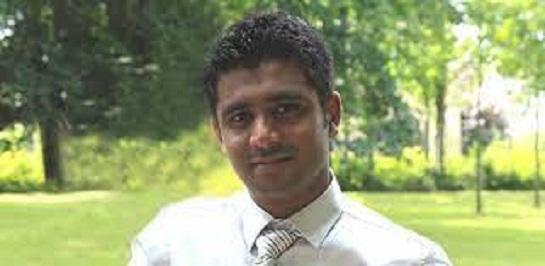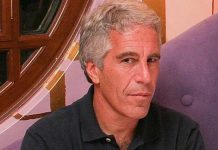Africa-Press – Mauritius. Yannick Gounden holds a doctorate in cognitive psychology from Paris Descartes University. He is a psychologist specializing in neuropsychology. Author of several scientific articles, he works as a teacher-researcher at the University of Picardie Jules Vernes in Amiens.
He left his native island in 2003 but his heart remains attached to his homeland. * You work as a neuropsychologist and teacher-researcher in France. Were you ambitious or did you benefit from circumstances that facilitated your career path?
First, my family always supported me during my studies. My father is a secondary school teacher and my mother is self-employed in the restaurant business.
I have one brother and two sisters. My parents did everything to help us achieve our dreams. Mutual aid is an important value in our family, which allows us to always pull up those who need support at one time or another.
Then, I also met the right people at the right time, including a wonderful thesis supervisor. So, yes, I benefited from certain circumstances that facilitated my journey.
Of course, like many, I did odd jobs to fully finance my studies. There have been ups and downs, but my driving force to move forward has never been ambition but rather passion.
Today I do things that I am passionate about, supporting sick people, teaching and doing research at the university. * Did you face any cultural difficulties when you arrived in France?
The French use certain subtleties of language in various situations. For example, at first I had a little trouble understanding the irony; I took things at face value.
Society is also more individualistic. For example, I found it abnormal not to know my neighbours. But hey, you get used to it and then you adapt when you have a circle of friends.
* How was your integration in France? The university, in Paris, is quite cosmopolitan. So, the relationships were woven naturally. The other Mauritians I met here did not express any real difficulty in integrating either.
Being fluent in French, coming from an island that many idealize in France (the sun, the beach, the sea…), and having lived in a multicultural society are assets.
* Why did you choose to study in France? For several reasons.
– I have always wanted to discover France and its culture.
– It was also more reassuring because I have uncles and aunts who live in France.
– Of course, studies also remain financially more accessible in France than elsewhere. With a student job, the will, a good organization, a student can finance quality training on his own.
* Looking back, what do you think of your school career in Mauritius? Are you satisfied with it?
Yes, I am all the more so as I see it today a bit like an obstacle course. I attended a state college, Mootoocoomaren Sungeelee SSS, which is in Suriname.
I had 16 units at the time in SC. Unfortunately, I had to stop my schooling in an establishment despite my results. It turned out that no college could offer me the combination of majors I had chosen: English, French and sociology.
And me, I absolutely did not want to orient myself towards the natural sciences, or in economics and accounting in HSC. Therefore, I decided to prioritize passion and get out of my comfort zone.
So I continued my schooling at home as a free candidate for my HSC. The mourning of not having a normal education with my classmates was not easy to live with, especially in adolescence.
It was a time of solitude, filled with uncertainties and doubts,. . . * What is your view of your career at Mootoocoomaren Sungeelee College, a state “small college”?
I am very nostalgic for this period. I am told that the college has changed a lot today. Without a doubt, these were the best years of my school life in Mauritius.
The teachers were from a new generation with a sense of pedagogy, the infrastructure was recent and I had a great group of friends. Unfortunately, my passage in the secondary cycle was cut short just after the SC.
For me, those were good years. The training I received at the “MS4” college was decisive for my professional orientation. The first rector of the college, Mr.
Thoda, was a “life coach” for many of us. He was our rector for three years. Every morning, before starting the day, we would do a meditation session, which I would associate today with a form of mindfulness meditation.
Her meditation sessions and kindness have had long term benefits for me. Allow me to make two comments. – M Thoda was innovative because this practice is currently booming in schools in France.
– The term “small college” as opposed to “star school”, is quite stigmatizing, and can even affect self-esteem, which is fragile in adolescence.
* Are there other people who have influenced your college education? Without a doubt, Mrs. Mutylall. She supported me after SC.
For two years, I went to her house to work on my English literature texts. * What memories do you keep of your school life in Mauritius at the primary level?
I attended Permal Soobrayen primary school in Souillac. If I disregard the blows of rattans, I still spent good years in primary school. I mostly remember football and my friends.
I admit that I loved playing football with them during recess. Today, thanks to my academic knowledge, I realize that I had delays in learning, even some difficulties that still persist today (a slight dyspraxia).
In relation to my difficulties, which are probably of developmental origins (the galaxy of dys: dyslexia, dysorthographia, dysgraphia, dyspraxia, etc.), I was able to progress in my schooling by implementing compensatory strategies or by avoiding certain situations that could put me in trouble. For example, my little brother was always tying my shoelaces at school.
For certain tasks (for example drawing a cube or other complex structures), I practiced the exercises repeatedly in order to be able to produce something that was correct afterwards.
I also stored a lot of vocabulary in order to quickly find synonyms for a word whose spelling I no longer knew. I did not have any particular support but, fortunately, my difficulties were slight.
To my knowledge, at the time, there was no particular device to support people suffering from “dsy”. For example, I would have liked to benefit from a third time for exams.
You should know that a person suffering from “dys” is not less “intelligent” than another. Appropriate solutions should be proposed and the necessary support provided.
* On March 12, we will celebrate the 50th anniversary of the independence of the Republic of Mauritius. As a young patriot, are you satisfied with the progress of the Republic of Mauritius? If yes, which ones ?
There are certainly areas where the Republic excels and my parents’ generation will probably be in a better position than me to see this progress. However, in view of my time frame (the 80s to today), personally, I am very disappointed.
For me, progress must be made with respect for the environment and putting people at the center of development. We are very far from the mark. Mauritius should put people and the environment back at the center of its projects.
In terms of the environment, we must put real sustainable development into practice and stop building the coastline. There are enough hotels! Why not develop homestay tourism? It would be a great way to put the Mauritian back at the center of development.
I follow very closely the various groups of citizens who campaign for the protection of our environment. I am impatiently awaiting the decision that the Government will take regarding Pomponette beach in the south of the island.
* With the experience acquired in France, what do you think of the health sector in Mauritius?
As far as the field of health is concerned, I am often saddened to see people on social networks who appeal for donations to seek treatment abroad. Often, parents are in distress as they struggle to find the money to save their child’s life.
Things have not changed much, online calls for donations have just replaced the small metal box that circulated in schools. Well-trained doctors are present on Mauritian soil, but infrastructure and equipment are still lacking.
I have seen friends die for things that would be “bobology” elsewhere. Of course, I can be told that elsewhere it can be just as bad, but that would be a misplaced understatement.12) Do you work with the elderly? Is there sufficient supervision today in Mauritius?
My area of research expertise concerns the elderly (normal/pathological aging). First let me make a comment. We must avoid “pathologizing” aging, which is a normal process.
I don’t really know what is currently offered in Mauritius, but I have the impression that specialized retirement homes are becoming more and more democratic.
I am personally more in favor of keeping the person at home with their family through adaptations and assistance (cleaning, meal delivery, toilet assistance, etc.
).
I think that free public transport is a good thing, but there is still progress to be made in terms of accessibility for the elderly or people with disabilities.
* And the field of education?
As far as education is concerned, I find that we have nothing to be ashamed of on a purely academic level, even if I would like us to put a little more emphasis on critical thinking and less on “cramming “. School is also a place of socialization, a place to learn to live together. I don’t understand why colleges are separated for boys and girls.
What message are we sending to young people? What is the point of such an organization? What impact on living together afterwards? The school is not only a place of academic transmission but also a place to acquire a “savoir-être”.
This form of male-female segregation, especially in adolescence, probably induces a misunderstanding of the other. * There is a lot of talk about indiscipline in schools in Mauritius.
The number of accidents linked to a lack of discipline of young people on the road does not change. . . As a specialist, what do you deduce from this?
Punishment is not the solution and can even be counterproductive. The origin is often multifactorial (personal, family, societal, etc. ) and it is important to understand “the why” of indiscipline at the wheel or elsewhere to better prevent problems.
In France, the scientific literature advocates preventive actions and suggests ways in this direction. I do not know if such studies exist in Mauritius but they would be important given the complexity of Mauritian society.
What is your opinion on private lessons? Like many, I took private lessons because it was almost a prerequisite for passing the CPE, this famous “rat race”.
This practice disturbs me enormously for several reasons which are all equally important. The school is supposed to limit the effects of social inequalities (linked to the family context, for example).
Private lessons further accentuate these inequalities because not everyone can afford to offer these lessons to their children. In my time, private lessons were not used to fill gaps because we were often ahead of the school program.
During the day, the teacher went over certain concepts fairly quickly because they had already been covered during the lessons. Result: those who could not afford these private lessons were penalized and, at times, some also dropped out.
Not being able to afford private lessons was also stigmatizing. We were identified as “poor”. I imagine that must be difficult for some children and parents.
The social mix also takes a hit because, from memory, the children who did not take private lessons were de facto less integrated into the group. Beyond being a source of discrimination and inequality, these lessons also deprive children of free time.
My classmates and I had little free time because in addition to school and after-school classes, evenings and weekends, we had to do homework. I had so many that my mother made some for me.
The development of our cognitive abilities is also done through boredom. Boredom is a powerful engine for developing and stimulating creativity. Moreover, with these long days of classes, we very quickly lost our intellectual curiosity as well as the pleasure of learning.
Curiosity and pleasure are essential for learning. Stress has an oxidative effect on the brain and this “rat race” – at this young age – is, for me, close to abuse.
We forget the objective of the school which is to transmit “know-how” and “know-how” and not to pass an exam. * Do you work with young people with learning difficulties? Is there sufficient supervision today in Mauritius?
At the university where I work, I also have the function of disability referent. For the supervision of young people with academic difficulties, it is necessary to identify the origin of these academic difficulties (often multifactorial: organic, psychological, environmental, etc.). The accompaniment is often personalized and centered on the singularity of the person.
To my knowledge, this type of support is not yet well developed or democratized in Mauritius. * HSC results were recently published. What do you think of the scholarships offered to attend a foreign university?
I think it’s good to reward people and offer merit-based scholarships. However, not everyone has the same chances of completing a secondary cycle in good conditions.
For more equal opportunities, we should also bring back more equity to help the working class. Without equity, there can be no equality. Winners from the most disadvantaged backgrounds are so rare that this type of event makes the headlines for a few days.
* We talk a lot about the “brain drain”. What do you think ? “Brains”, there are many in Mauritius.
Instead of taking care of those who left, we should first value those who remained in Mauritius. But it is a truth of La Palice: they are held back by the lack of meritocracy.
It would therefore be necessary to value skills, experience, the spirit of innovation, ignoring religion, political affiliation, gender. . . What are your wishes for your country of origin?
I love Mauritius very much. I wish for the emergence of a Mauritian Patriot and a Mauritian identity. When I lived in Mauritius, I always felt obliged to have an ethnicity, a rather complicated situation for me who comes from a mixed marriage.
* Can you elaborate on the difficulties of a child from a mixed couple? If I take my own example, I felt fragmented: I was sometimes Tamil and sometimes “Creole” depending on the people I interacted with.
Sometimes people thought I looked like my father and sometimes like my mother. Each time I felt like a “sellout” because I couldn’t be a bit of both in people’s eyes. It was absolutely necessary to choose. . . In France, I am Mauritian and French and proud of it.
In Mauritius, already in primary school classes, my friends at the time asked me to choose my favorite color on the Mauritian flag, yellow “si to madras” or blue “si to creole” a game so revealing! My favorite color was green but I wasn’t in it legitimately, so to speak….
I hope that one day we will protect and defend our islands (their beaches, their lands, their forests, their inhabitants…) with the same fervor, the same conviction and the same solidarity that everyone has for their community and their respective religion.
As the historian Sada Reddi said, “Mauritianism” is in a process of continuous construction. “You can’t create it artificially. ” I hope to live long enough to see the best loser system disappear and to see a proud and solid Mauritian nation emerge. The future is conditioned by the present. . . it’s up to us!
For More News And Analysis About Mauritius Follow Africa-Press







